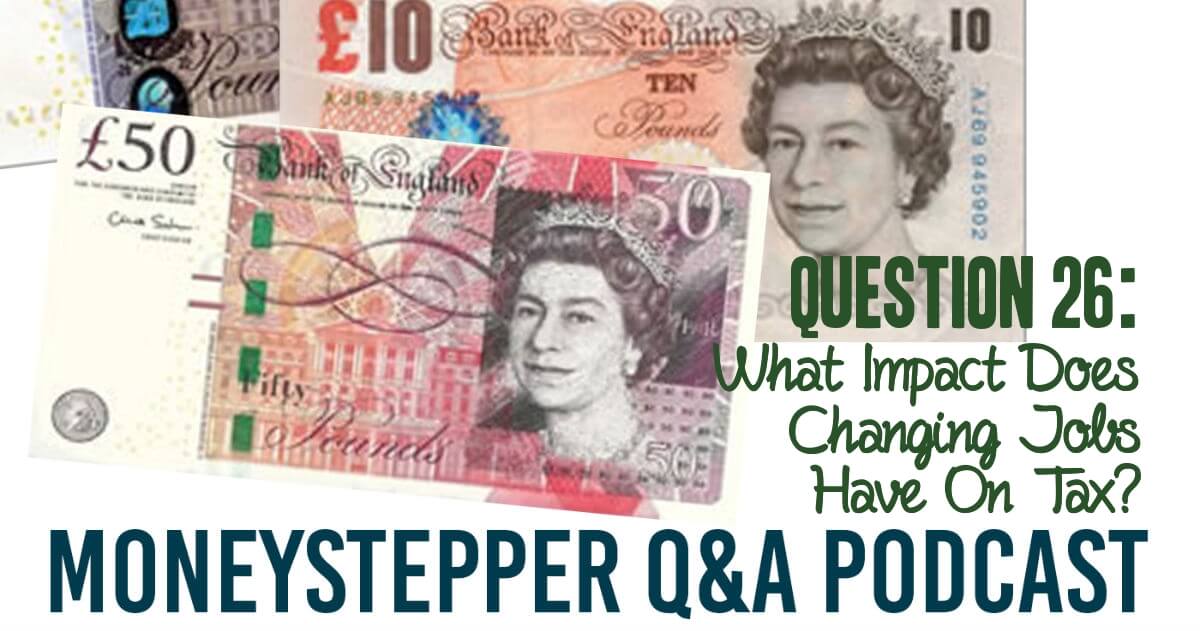Eric asks: “On Monday I will be starting my new job. I’m worried that I have overlooked something with my taxes. Do I need to tell HMRC about my new job? And do I need to inform my bank about it? Thanks for you advice.”
[powerpress]
Question 26 – What Impact Does Changing Jobs Have On Tax? – Shownotes
Today’s question comes from Eric:
On Monday I will be starting my new job. I’m worried that I have overlooked something with my taxes. Do I need to tell HMRC about my new job? Sorry if it’s a silly question, I just feel unprepared for my first full time job…
I am aware I need to inform my bank about it, so that they can tax the interest on my accounts.
Thanks for you advice.
Thanks for your question Eric and congratulations on your new job!
Thanks To HMRC And PAYE
Today’s answer is a quick one thanks to HMRC and their Pay-As-You-Earn system. No-one likes paying tax, but we do have to give some credit to the government for making tax payments from salary income fairly simple. In your case, the HMRC will deal with all the changes directly with your employer.
Effectively, the only thing you will need to do (which your new employer will ask for anyway) is to pass over the P45 that you received from your old employer to your new employer. Depending on your employers and the submission of real-time data to HMRC, this may no longer be required. I’d recommend that you speak to your new company’s HR department regarding this.
Then, your new company will send all the required information off to HMRC and they will automatically make any changes that need to be made.
Beyond that, the only other thing I would do is to check your tax code after you change your job to make sure it’s still as expected, and check the income tax and NI payments on your first payslip to make sure it’s correct.
To do this, you can use a simple online calculator to help.
Informing Your Bank
Regarding your need to inform your bank, you will only need to inform them if you change your tax band changes as a result of your new job (i.e. you go from being a non-tax payer to a basic rate payer).
Then, from April 2016, you can claim your first £1,000 of interest tax free, so unless you have significant amounts of savings earning healthy interest in your bank, it’s unlikely you’ll be paying tax on these savings.
So, Eric, a fairly rare thank you is in order for HMRC for making the process easy for you, and as long as you check your tax and NI rates on your first payslip with your new employer, there isn’t that much for you to worry about.
Ask Your Question
This show runs three times a week and answers all of your personal finance questions. If you have any questions, please don’t be shy to ask. You can ask in three ways:
- Leave a comment on any of the Q&A podcast shownotes (including this one)
- Email me at moneystepper@gmail.com
- Leave a message on the Speakpipe App which you will find below and on our “submit a question” page:

Leave a Reply